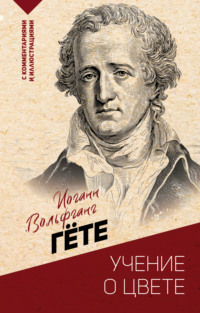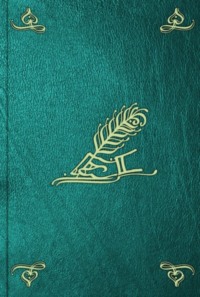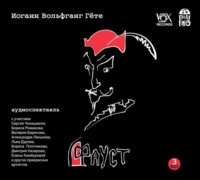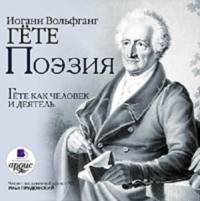 полная версия
полная версияThe Autobiography of Goethe
Neither my years nor the mass of present objects allowed me to make many reflections. I strove to see all as much as possible; and when the dessert was brought in and the ambassadors re-entered to pay their court, I sought the open air, and contrived to refresh myself with good friends in the neighbourhood, after a day's half-fasting, and to prepare for the illumination in the evening.
The Illuminations.
This brilliant night I purposed celebrating in a right hearty way; for I had agreed with Gretchen, and Pylades and his mistress, that we should meet somewhere at nightfall. The city was already resplendent at every end and corner when I met my beloved. I offered Gretchen my arm; we went from one quarter to another, and found ourselves very happy in each other's society. The cousins at first were also of out party, but were afterwards lost in the multitude of people. Before the houses of some of the ambassadors, where magnificent illuminations were exhibited (those of the Elector-Palatine were pre-eminently distinguished), it was as clear as day. Lest I should be recognised, I had disguised myself to a certain extent, and Gretchen did not find it amiss. We admired the various brilliant representations and the fairy-like structures of flame by which each ambassador strove to outshine the others. But Prince Esterhazy's arrangements surpassed all the rest. Our little company were in raptures both with the invention and the execution, and we were just about to enjoy this in detail, when the cousins again met us, and spoke to us of the glorious illumination with which the Brandenburg ambassador had adorned his quarters. We were not displeased at taking the long way from the Rossmarkt (Horse-market) to the Saalhof; but found that we had been villanously hoaxed.
The Saalhof is, towards the Maine, a regular and handsome structure, but the part in the direction of the city is exceedingly old, irregular, and unsightly. Small windows, agreeing neither in form nor size, neither in a line nor placed at equal distances, gates and doors arranged without symmetry, a ground-floor mostly turned into shops, – it forms a confused outside, which is never observed by any one. Now here this accidental, irregular, unconnected architecture had been followed, and every window, every door, every opening, was surrounded by lamps; as indeed can be done with a well-built house; but here the most wretched and ill-formed of all façades was thus quite incredibly placed in the clearest light. Did one amuse oneself with this as with the jests of the Pagliasso,18 though not without scruple, since everybody must recognise something intentional in it; – just as people had before glossed over the previous external deportment of Von Plotho, so much prized in other respects, and when once inclined towards him, had admired him as a wag, who, like his king, would place himself above all ceremonies – one nevertheless gladly returned to the fairy kingdom of Esterhazy.
This eminent envoy, to honour the day, had quite passed over his own unfavourably situated quarters, and in their stead bad caused the great esplanade of linden-trees in the Horse-market to be decorated in the front with a portal illuminated with colours, and at the back with a still more magnificent prospect. The entire enclosure was marked by lamps. Between the trees stood pyramids and spheres of light, upon transparent pedestals; from one tree to another were stretched glittering garlands, on which floated suspended lights. In several places bread and sausages were distributed among the people, and there was no want of wine.
Here now, four abreast, we walked very comfortably up and down, and I, by Gretchen's side, fancied that I really wandered in those happy Elysian fields where they pluck from the trees crystal cups that immediately fill themselves with the wine desired, and shake down fruits that change into every dish at will. At last we also felt such a necessity, and conducted by Pylades, we found a neat, well-arranged eating-house. When we encountered no more guests, since everybody was going about the streets, we were all the better pleased, and passed the greatest part of the night most happily and cheerfully, in the feeling of friendship, love, and attachment. When I had accompanied Gretchen as far as her door, she kissed me on the forehead. It was the first and last time that she granted me this favour; for, alas, I was not to see her again.
The next morning, while I was yet in bed, my mother entered, in trouble and anxiety. It was easy to see when she was at all distressed. "Get up," she said, "and prepare yourself for something unpleasant. It has come out that you frequent very bad company, and have involved yourself in very dangerous and bad affairs. Your father is beside himself, and we have only been able to get thus much from him, that he will investigate the affair by means of a third party. Remain in your chamber and await what may happen. Councillor Schneider will come to you; he has the commission both from your father and from the authorities; for the matter is already prosecuted, and may take a very bad turn."
Goethe in Trouble.
I saw that they took the affair for much worse than it was; yet I felt myself not a little disquieted, even if only the actual state of things should be detected. My old Messiah-loving friend finally entered, with the tears standing in his eyes; he took me by the arm, and said, "I am heartily sorry to come to you on such an affair. I could not have supposed that you could go astray so far. But what will not wicked companions and bad example do! Thus can a young inexperienced man be led step by step into crime!" "I am conscious of no crime," I replied, "and as little of having frequented bad company." "The question now is not one of defence," said he, interrupting me, "but of investigation, and on your part of an upright confession" "What do you want to know?" retorted I. He seated himself, drew out a paper, and began to question me: "Have you not recommended N. N. to your grandfather as a candidate for the * * place?" I answered, "Yes." "Where did you become acquainted with him?" "In my walks." "In what company?" I started: for I would not willingly betray my friends. "Silence will not do now," he continued, "for all is sufficiently known." "What is known then?" said I. "That this man has been introduced to you by others like him – in fact, by * * *." Here he named three persons whom I had never seen nor known: which I immediately explained to the questioner. "You pretend," he resumed, "not to know these men, and have yet had frequent meetings with them." "Not in the least," I replied; "for, as I have said, except the first, I do not know one of them, and even him I have never seen in a house." "Have you not often been in * * * street?" "Never," I replied. This was not entirely conformable to the truth. I had once accompanied Pylades to his sweetheart, who lived in that street; but we had entered by the back-door, and remained in the summer-house. I therefore supposed that I might permit myself the subterfuge, that I had not been in the street itself.
The good man put more questions, all of which I could answer with a denial: for of all that he wished to learn I knew nothing. At last he seemed to become vexed, and said, "You repay my confidence and good-will very badly; I come to save you. You cannot deny that you have composed letters for these people themselves or for their accomplices, have furnished them writings, and have thus been accessory to their evil acts, for the question is of nothing less than of forged papers, false wills, counterfeit bonds, and things of the sort. I come not only as a friend of the family, I come in the name and by order of the magistrates, who, in consideration of your connexions and youth, would spare you and some other young persons, who, like you, have been lured into the net." It was strange to me that among the persons he named, none of those with whom I had been intimate were found. The circumstances touched, without agreeing, and I could still hope to save my young friends. But the good man grew more and more urgent. I could not deny that I had come home late many nights, that I had contrived to have a house-key made, that I had been seen at public places more than once with persons of low rank and suspicious looks, that some girls were mixed up in the affair; in short, everything seemed to be discovered but the names. This gave me courage to persist steadfastly in my silence. "Do not," said my excellent friend, "let me go away from you; the affair allows of no delay; immediately after me another will come, who will not grant you so much scope. Do not make the matter, which is bad enough, worse by your obstinacy."
I represented very vividly to myself the good cousins, and particularly Gretchen: I saw them arrested, tried, punished, disgraced, and then it went through my soul like a flash of lightning, that the cousins, though they always observed integrity towards me, might have engaged in such bad affairs, at least the oldest, who never quite pleased me, who came home later and later, and had little to tell of a cheerful sort. Still I kept back my confession. "Personally," said I, "I am conscious of nothing evil, and can rest satisfied on that side, but it is not impossible that those with whom I have associated may have been guilty of some daring or illegal act. They may be sought, found, convicted, punished; I have hitherto nothing to reproach myself with; and will not do any wrong to those who have behaved well and kindly to me." He did not let me finish, but exclaimed with some agitation, "Yes, they will be found out. These villains met in three houses. (He named the streets, he pointed out the houses, and, unfortunately, among them was the one to which I used to go.) The first nest is already broken up, and at this moment so are the two others. In a few hours the whole will be clear. Avoid, by a flunk confession, a judicial inquiry, a confrontation, and all other disagreeable matters." The house was known and marked. Now I deemed silence useless; nay, considering the innocence of our meetings, I could hope to be still more useful to them than to myself. "Sit down," I exclaimed, fetching him back from the door; "I will tell all, and at once lighten your heart and mine; only one thing I ask; henceforth let there be no doubt of my veracity."
Goethe's Distress.
I soon told my friend the whole progress of the affair, and was, at first, calm and collected; but the more I brought to mind and pictured to myself the persons, objects, and events, so many innocent pleasures and charming enjoyments, and was forced to depose as before a criminal court, the more did the most painful feeling increase, so that at last I burst forth in tears and gave myself up to unrestrained passion. The family friend, who hoped that now the real secret was coming to light (for he regarded my distress as a symptom that I was on the point of confessing with repugnance something monstrous), sought to pacify me, as with him the discovery was the all-important matter. In this he only partly succeeded, but so far, however, that I could eke out my story to the end. Though satisfied of the innocence of the proceedings, he was still doubtful to some extent, and put further questions to me, which excited me afresh, and transported me with pain and rage. I asserted, finally, that I had nothing more to say, and well knew that I need fear nothing, for I was innocent, of a good family, and well reputed; but that they might be just as guiltless without having it recognised, or being otherwise favoured. I declared at the same time, that if they were not spared like myself, that if their follies were not regarded with indulgence, and their faults pardoned, that if anything in the least harsh or unjust happened to them, I would do myself a mischief, and no one should prevent me. In this, too, my friend tried to pacify me; but I did not trust him, and was, when he quitted me at last, in a most terrible state. I now reproached myself for having told the affair, and brought all the positions to light. I foresaw that our childish actions, our youthful inclinations and confidences, might be quite differently interpreted, and that I might perhaps involve the excellent Pylades in the matter, and render him very unhappy. All these images pressed vividly one after the other before my soul, sharpened and spurred my distress, so that I did not know what to do for sorrow. I cast myself at full length upon the floor, and moistened it with my tears.
I know not how long I might have lain, when my sister entered, was frightened at my gestures, and did all that she could to raise me up. She told me that a person connected with the magistracy had waited below with my father for the return of the family friend, and that after they had been closeted together for some time, both the gentlemen had departed, had talked to each other with apparent satisfaction, and had even laughed. She believed that she had heard the words – "It is all right; the affair-is of no consequence." "Indeed!" I broke out, "the affair is of no consequence for me, – for us; for I have committed no crime, and if I had, they would contrive to help me through: but the others, the others," I cried, "who will stand by them!"
My sister tried to comfort me by circumstantially arguing that if those of higher rank were to be saved, a veil must also be cast over the faults of the more lowly. All this was of no avail. She had scarcely left than I again abandoned myself to my grief, and ever recalled alternately the images both of my affection and passion and of the present and possible misfortune. I repeated to myself tale after tale, saw only unhappiness following unhappiness, and did not fail in particular to make Gretchen and myself truly wretched.
The family friend had ordered me to remain in my room, and have nothing to do with any one but the family. This was just what I wanted, for I found myself best alone. My mother and sister visited me from time to time, and did not fail to assist me vigorously with all sorts of good consolation; nay, even on the second day they came in the name of my father, who was now better informed, to offer me a perfect amnesty, which indeed I gratefully accepted; but the proposal that I should go out with him and look at the insignia of the Empire, which were now exposed to the curious, I stubbornly rejected, and I asserted that I wanted to know nothing either of the world or of the Roman Empire till I was informed how that distressing affair, which for me could have no further consequences, had turned out for my poor acquaintance. They had nothing to say on this head, and left me alone. Yet the next day some further attempts were made to get me out of the house and excite in me a sympathy for the public ceremonies. In vain! neither the great gala-day, nor what happened on the occasion of so many elevations of rank, nor the public table of the Emperor and King, – in short, nothing could move me. The Elector of the Palatinate might come and wait on both their Majesties; these might visit the Electors; the last electoral sitting might be attended for the despatch of business in arrear, and the renewal of the electoral union; – nothing could call me forth from my passionate solitude. I let the bells ring for the rejoicings, the Emperor repair to the Capuchin church, the Electors and Emperor depart, without on that account moving one step from my chamber. The final cannonading, immoderate as it might be, did not arouse me, and as the smoke of the powder dispersed, and the sound died away, so had all this glory vanished from my soul.
Goethe's illness.
I now experienced no satisfaction but in chewing the cud of my misery, and in a thousandfold imaginary multiplication of it. My whole inventive faculty, my poetry and rhetoric, had cast themselves on this diseased spot, and threatened, precisely by means of this vitality, to involve body and soul into an incurable disorder. In this melancholy condition nothing more seemed to me worth a desire, nothing worth a wish. An infinite yearning, indeed, seized me at times to know how it had gone with my poor friends and my beloved, what had been the result of a stricter scrutiny, how far they were implicated in those crimes, or had been found guiltless. This also I circumstantially painted to myself in the most various ways, and did not fail to hold them as innocent and truly unfortunate. Sometimes I longed to see myself freed from this uncertainty, and wrote vehemently threatening letters to the family friend, insisting that he should not withhold from me the further progress of the affair. Sometimes I tore them up again, from the fear of learning my unhappiness quite distinctly, and of losing the principal consolation with which hitherto I had alternately tormented and supported myself.
Thus I passed both day and night in great disquiet, in raving and lassitude, so that I felt happy at last when a bodily illness seized me with considerable violence, when they had to call in the help of a physician, and think of every way to quiet me. They supposed that they could do it generally by the sacred assurance that all who were more or less involved in the guilt had been treated with the greatest forbearance, that my nearest friends, being as good as innocent, had been dismissed with a slight reprimand, and that Gretchen had retired from the city and had returned to her own home. They lingered the most over this last point, and I did not take it in the best part; for I could discover in it, not a voluntary departure, but only a shameful banishment. My bodily and mental condition was not improved by this; my distress now first really began, and I had time enough to torment myself by picturing the strangest romance of sad events, and an inevitably tragical catastrophe.
PART THE SECOND
SIXTH BOOK
Illness and Recovery – LeipzigThus was I driven alternately to assist and to retard my recovery, and a certain secret chagrin was now added to my other sensations; for I plainly perceived that I was watched, – that they were loth to hand me any sealed paper without taking notice what effect it produced – whether I kept it secret – whether I laid it down open, and the like. I therefore conjectured that Pylades, or one of the cousins, or even Gretchen herself, might have attempted to write to me, either to give or to obtain information. In addition to my sorrow, I was now for the first time thoroughly cross, and had again fresh opportunities to exercise my conjectures, and to mislead myself into the strangest combinations.
It was not long before they gave me a special overseer. Fortunately, it was a man whom I loved and valued. He had held the place of tutor in the family of one of our friends; and his former pupil had gone alone to the university. He often visited me in my sad condition, and they at last found nothing more natural than to give him a chamber next to mine, as he was then to employ me, pacify me, and, as I marked, keep his eye upon me. Still, as I esteemed him from my heart, and had already confided many things to him, though not my affection for Gretchen, I determined so much the more to be perfectly candid and straightforward with him, as it was intolerable to me to live in daily intercourse with any one, and at the same time to stand on an uncertain, constrained footing with him. It was not long, then, before I spoke to him about the affair, refreshed myself by the relation and repetition of the minutest circumstances of my past happiness, and thus gained so much, that he, like a sensible man, saw it would be better to make me acquainted with the issue of the story, and that too in its details and particulars, so that I might be clear as to the whole, and that with earnestness and zeal, I might be persuaded of the necessity of composing myself, throwing the past behind me, and beginning a new life. First he confided to me who the other young people of quality were who had allowed themselves to be seduced, at the outset, into daring hoaxes, then into sportive breaches of police, afterwards into frolicsome impositions on others, and other such dangerous matters. Thus actually had arisen a little conspiracy, which unprincipled men had joined, who, by forging papers and counterfeiting signatures, had perpetrated many criminal acts, and had still more criminal matters in preparation. The cousins, after whom I at last impatiently inquired, had been found to be quite innocent, only very generally acquainted with those others, and not at all implicated with them. My client, by recommending whom to my grandfather I had in fact put people on the scent, was one of the worst, and bad sued for that office chiefly that he might undertake or conceal certain villanies. After all this, I could at last contain myself no longer, and asked what had become of Gretchen, for whom I, once for all, confessed the strongest attachment. My friend shook his head and smiled, – "Make yourself easy," replied he; "this girl has passed her examination very well, and has borne off honourable testimony to that effect. They could discover nothing in her but what was good and amiable, the examiners themselves were well-disposed to her, and could not refuse her desire of removing from the city. Even what she has confessed in respect to you, too, my friend, does her honour; I have read her deposition in the secret reports myself, and seen her signature." "The signature!" exclaimed I, "which makes me so happy and so miserable. "What has she confessed, then? What has she subscribed?" My friend delayed answering; but the cheerfulness of his face showed me that he concealed nothing dangerous. "If you must know, then," replied he at last, "when she was interrogated concerning you, and her intercourse with you, she said quite frankly, 'I cannot deny that I have seen him often and with pleasure; but I have always treated him as a child, and my affection for him was truly that of a sister. In many cases I have given him good advice, and instead of instigating him to any equivocal action, I have hindered him from taking part in wanton tricks, which might have brought him into trouble.'"
Change of Feeling Towards Gretchen.
My friend still went on making Gretchen speak like a governess; but I bad already for some time ceased to listen to him; for I was terribly affronted that she had set me down in the reports as a child, and believed myself at once cured of all passion for her. I even hastily assured my friend that all was now over. I also spoke no more of her, named her no more; but I could not leave off the bad habit of thinking about her, and of recalling her form, her air, her demeanour, though now, in fact, all appeared to me in quite another light. I felt it intolerable that a girl, at the most only a couple of years older than me, should regard me as a child, while I conceived I passed with her for a very sensible and clever youth. Her cold and repelling manner, which had before so charmed me, now seemed to me quite repugnant; the familiarities which she had allowed herself to take with me, but had not permitted me to return, were altogether odious. Yet all would have been well enough for me, if by subscribing that poetical love-letter, in which she had confessed a formal attachment to me, she had not given me a right to regard her as a sly and selfish coquette. Her masquerading it at the milliner's, too, no longer seemed to me so innocent; and I turned these annoying reflections over and over within myself until I had entirely stripped her of all her amiable qualities. My judgment was convinced, and I thought I must cast her away; but her image! – her image gave me the lie as often as it again hovered before me, which indeed happened often enough.
Nevertheless, this arrow with its barbed hooks was torn out of my heart, and the question then was, how the inward sanative power of youth could be brought to one's aid? I really put on the man; and the first thing instantly laid aside was the weeping and raving, which I now regarded as childish in the highest degree. A great stride for the better! For I had often, half the night through, given myself up to this grief, with the greatest violence, so that at last, from my tears and sobbing, I came to such a point that I could scarce swallow any more, the pleasure of eating and drinking became painful to me, and my breast, which was so nearly concerned, seemed to suffer. The vexation which I had constantly felt since the discovery, made me banish every weakness. I found it frightful that I had sacrificed sleep, repose and health, for the sake of a girl who was pleased to consider me a babe, and to imagine herself, with respect to me, something very much like a nurse.









